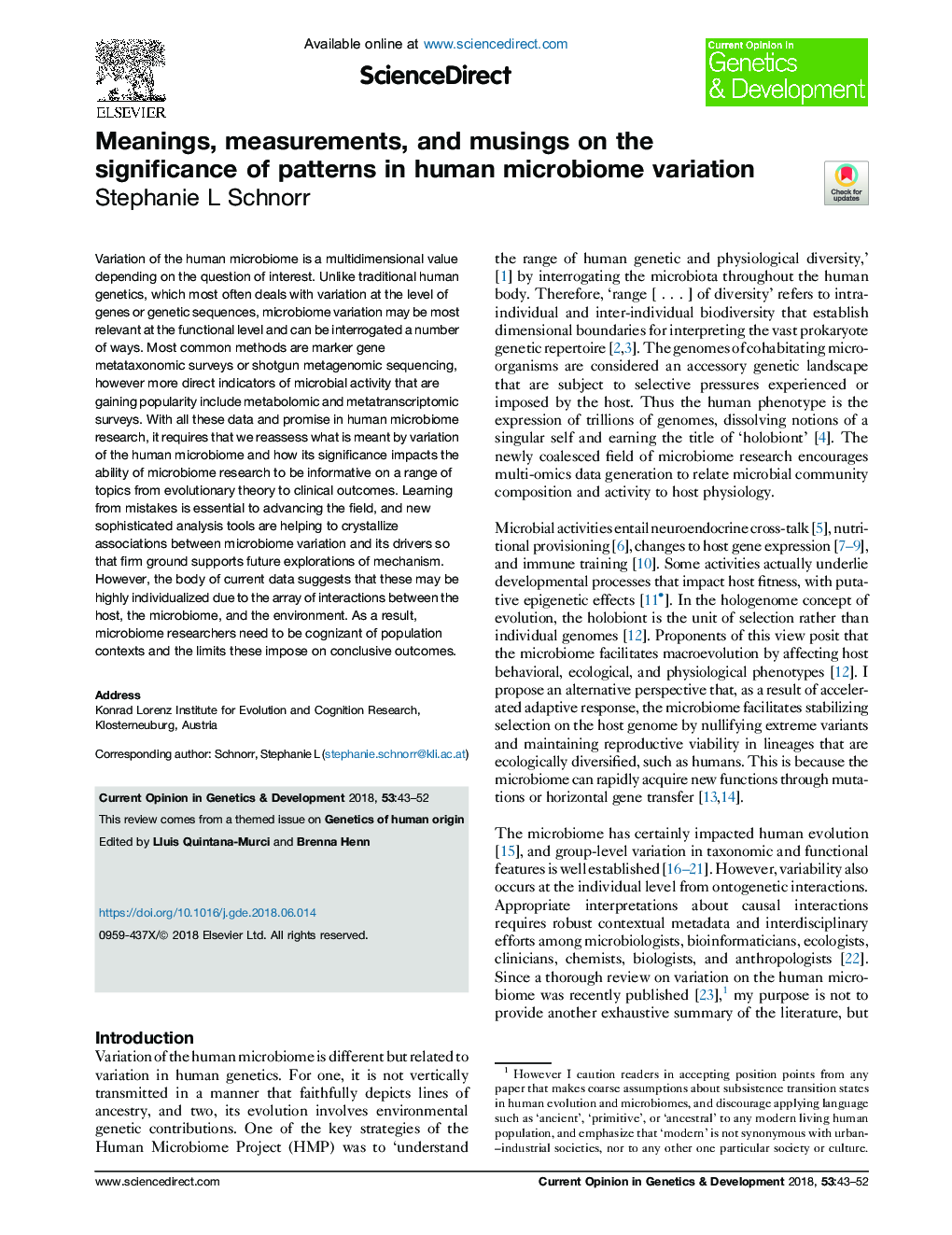| Article ID | Journal | Published Year | Pages | File Type |
|---|---|---|---|---|
| 8625616 | Current Opinion in Genetics & Development | 2018 | 10 Pages |
Abstract
Variation of the human microbiome is a multidimensional value depending on the question of interest. Unlike traditional human genetics, which most often deals with variation at the level of genes or genetic sequences, microbiome variation may be most relevant at the functional level and can be interrogated a number of ways. Most common methods are marker gene metataxonomic surveys or shotgun metagenomic sequencing, however more direct indicators of microbial activity that are gaining popularity include metabolomic and metatranscriptomic surveys. With all these data and promise in human microbiome research, it requires that we reassess what is meant by variation of the human microbiome and how its significance impacts the ability of microbiome research to be informative on a range of topics from evolutionary theory to clinical outcomes. Learning from mistakes is essential to advancing the field, and new sophisticated analysis tools are helping to crystallize associations between microbiome variation and its drivers so that firm ground supports future explorations of mechanism. However, the body of current data suggests that these may be highly individualized due to the array of interactions between the host, the microbiome, and the environment. As a result, microbiome researchers need to be cognizant of population contexts and the limits these impose on conclusive outcomes.
Related Topics
Life Sciences
Biochemistry, Genetics and Molecular Biology
Developmental Biology
Authors
Stephanie L Schnorr,
